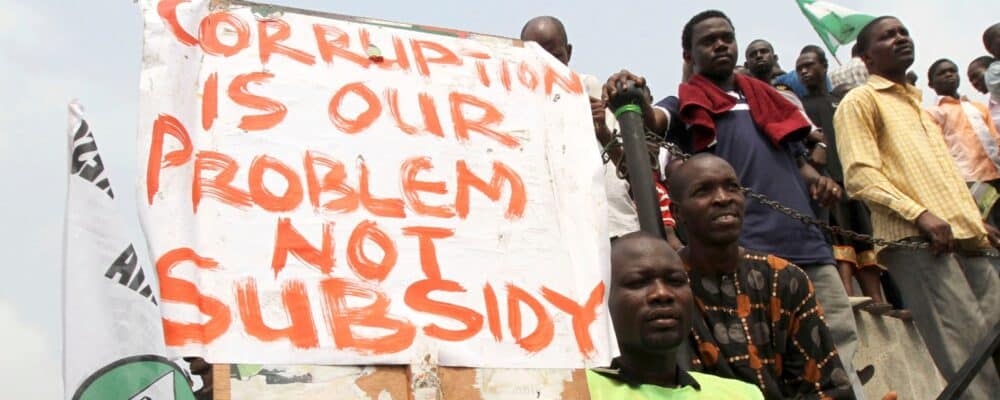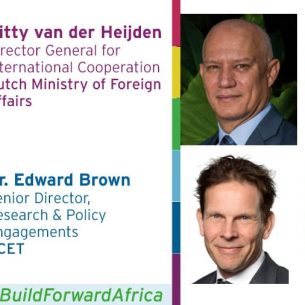
When people are not voting in their economic self-interest, how should development policy be designed? By emphasizing redistribution over efficiency, to signal that government is delivering to the public, thereby helping to restore people’s confidence in government.
Notwithstanding remarkable progress in reducing poverty, including in the last decade, the developing world enters the 2020s in a precarious state. India is running out of water. Much of the Middle East is mired in civil war or violent conflict. The number of African countries in debt distress has more than doubled. Climate change is already affecting the Sahel, home to some of the world’s poorest people. The trade war between the U.S. and China, if it escalates, could disrupt a main engine of poverty reduction. Rich countries are putting up barriers to migration, stifling opportunities to increase productivity sixfold and to provide aging societies with young people.
Most, if not all, of these problems are the result of public policies that are politically attractive but eventually end up hurting everybody, including the poor. India has resisted charging for water on grounds that water is essential for life and the poor will not be able to pay for it. As a result, the country is running out of water and the poor have the least access to what is left. The crises in the Middle East stem from policies such as fuel subsidies and guaranteed public-sector jobs that were not sustainable. African countries borrowed for infrastructure without the necessary policy reforms, leading to little improvement in infrastructure services and hence growth. The U.S.’s tariffs on Chinese imports have hurt American producers and consumers. Migration restrictions, aimed at reducing unemployment in the host country, have the opposite effect because migrants and indigenous workers are typically complements not substitutes.
Despite the harmful effects of these populist policies, politicians who advocate them get elected and reelected. Efforts at reforming the policies are met with resistance and potentially destabilizing protests (the civil war in Yemen broke out the day after they cut fuel subsidies). Why, in a world that is becoming increasingly democratic, do people vote for politicians who are not delivering for the majority? Why do they oppose reforms that could leave them better off?
One answer is that the voters are not well-informed, especially about the link between public policies and outcomes. [Anecdote: I spent a week in western India, living and working with a poor woman. One day, her son was sick, and she took him to a local, private doctor (who I suspect was a quack). When I asked her why she didn’t take him to the public clinic, which was free, she replied, “Because the doctor is never there.” I then asked her why the doctor was not there. Her answer was poignant: “It’s because the rains didn’t come this year.”] Politicians have an incentive to keep voters in the dark, so they would not be held accountable for poor development outcomes. In response, there have been several efforts at improving information and transparency in developing countries. Rigorous evaluations of these programs show that, in some cases, disseminating information about performance has an effect on electoral outcomes. For example, publishing information from audit reports in Mexico led to the parties of malfeasant mayors being defeated in the next election.
But recent events prompt a reconsideration of this information-driven model of populism. The U.K.’s vote on Brexit and the election of Donald Trump in the U.S. are arguably examples where a relatively well-informed electorate voted against their economic self-interest. When, in early 2012, the Nigerian government announced a sharp reduction in fuel subsidies, protests broke out all over the country. Even though the subsidy cuts disproportionately hurt rich people, many of the protestors were poor. Why? Because the levels of corruption and mismanagement in Nigeria were so high that fuel subsidies were the only way ordinary Nigerians saw any benefit from the country’s oil wealth. When the government promised to use some of the savings from fuel subsidy reduction to compensate the poor, the protests continued. Since the government had done little to help the poor in the past, why would they do so now?
When the government loses credibility, populist policies such as subsidized water and electricity, are much harder to reform. No amount of information (including information about how the poor will benefit from the reforms) will stop the protests against reforms.
We need a new model, one that is aimed at rebuilding trust in government.
A clue to that model comes from an experience in Iran with subsidy reform. In the mid-2000s, energy subsidies in Iran constituted an unsustainable 25 percent of GDP. But promises that subsidy removal would be accompanied by targeted cash transfers were met with skepticism. The government of Iran did something different. They handed out the cash transfers ahead of the subsidy reform. People could see the money in their bank account but they could not spend it until the subsidies were removed. The reforms were implemented with hardly any protest.
The Iranian experiment could be the basis of a new model. The typical sequence is that governments propose an efficiency-enhancing policy, such as subsidy reform or trade liberalization, and then consider redistributive policies to compensate those who are harmed by the efficiency policies. A new model would reverse that sequence. Government first commits to redistribution and then looks for efficiency-enhancing policies to pay for it.
At one level, the net result of the package of policies will be no different. However, in the setting where citizens have lost faith in government’s ability to do something for them, this reversal of the order is critical. It signals government’s commitment to benefit the poor—something government has been unable to do in the past. It may help reestablish citizens’ confidence in government and, as in the case of Iran’s subsidy reform, build political support for these efficiency- and equity-enhancing reforms.
The populist era—not to mention the dangerous situation the world is in—calls for a substantial reconsideration of development policies. Seemingly beneficial, pro-poor reforms are stymied because citizens, even if they are fully informed, do not trust governments to act in their interest. One solution is to shift the stance of government from a growth-with-equity engine to one that is focused on equity, with the growth component mainly to finance its redistributive stance.








